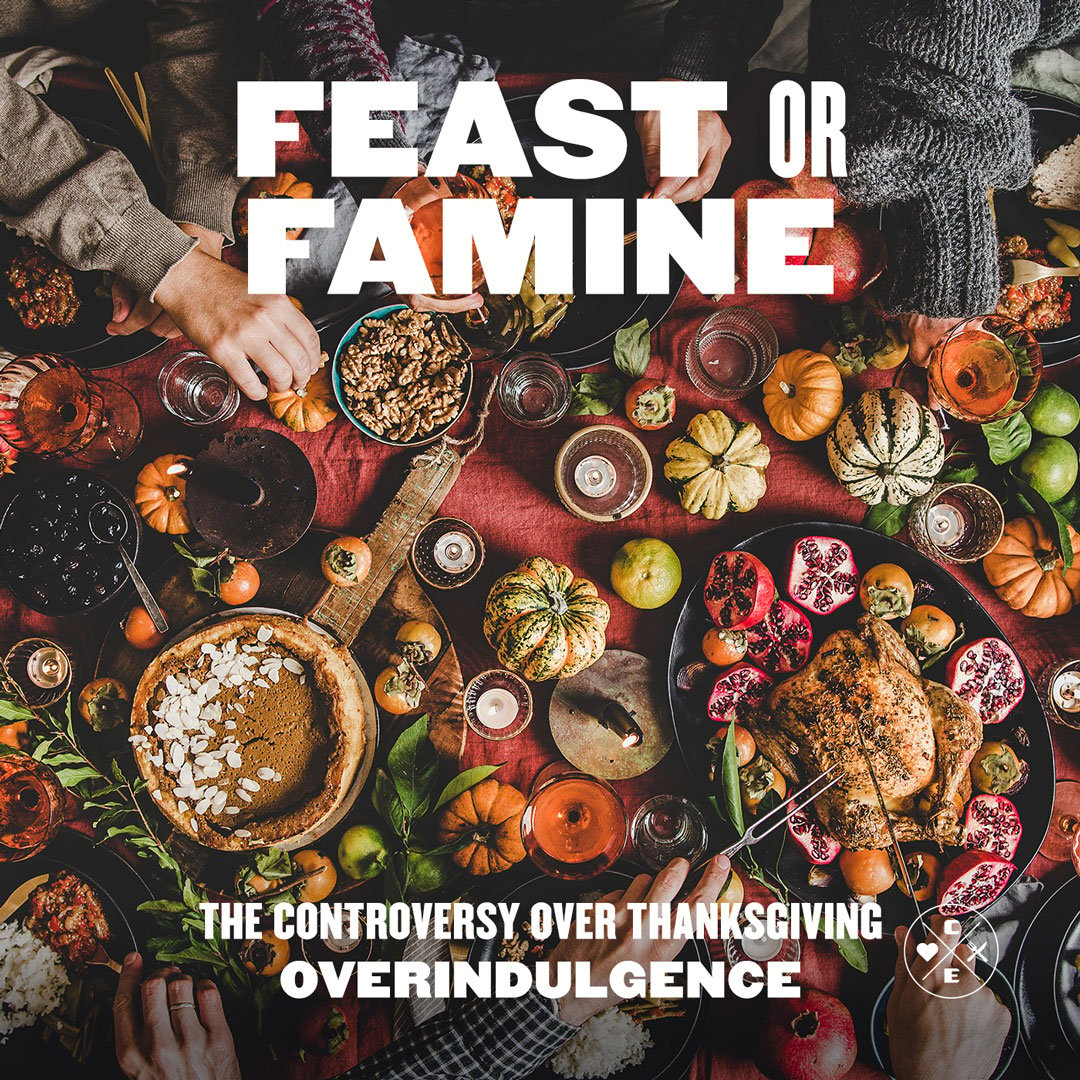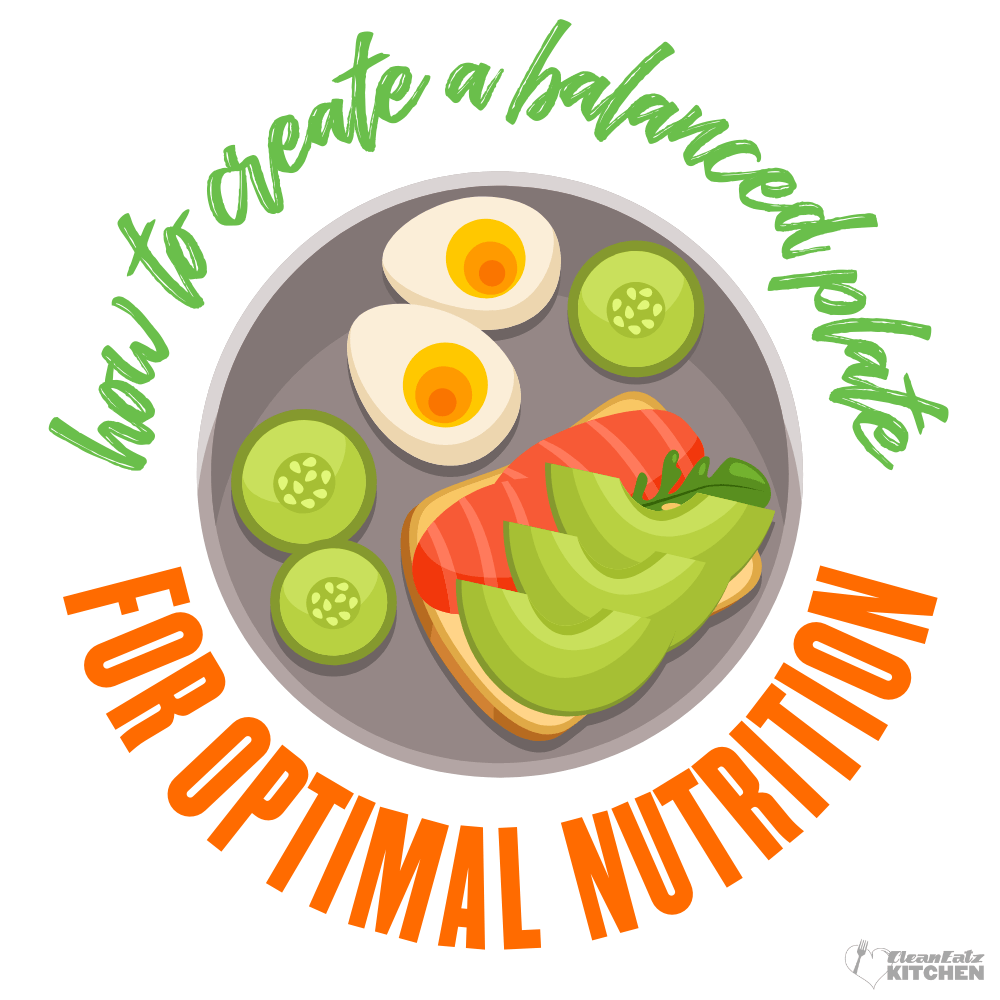
Are Cheat Meals Holding You Back from Your Goals?
Dorothy M. Shirnyl, RND
Nutrition
|
Weight Loss
|
Healthy Lifestyle
15 minute read
Thanksgiving is just around the corner, and we all know what that means: tables laden with tempting dishes, festive gatherings, and the undeniable urge to indulge. But amidst the joy, a nagging concern often creeps in: will this feast derail our health goals?
While cheat meals can be motivating and satisfy cravings, they can also leave you feeling guilty and unsure about your progress. So, should we just forget about indulging during the holidays?
Not necessarily. Understanding the role of cheat meals can empower you to make healthy choices, even when faced with tempting treats.
In this article, we will cut through the confusion surrounding cheat meals, exploring the science, weighing the benefits and drawbacks, and providing practical strategies for navigating special occasions like Thanksgiving. We will tackle the following matters:
- The Purpose of Cheat Meals in Dieting
- The Impact of Cheat Meals on Physical Health
- Do Cheat Meals Actually Derail Progress?
- Why Thanksgiving Doesn't Have to Be a “Cheat” Day?
- How to Make the Most of Cheat Meals Without Derailing Goals?
- How to Get Back on Track After a Cheat Meal
The Purpose of Cheat Meals in Dieting
The term "cheat meal" doesn't exactly evoke positive feelings. It implies that you're doing something wrong, breaking the rules of your diet, and potentially sabotaging your progress. This negative connotation can lead to feelings of guilt and shame, even if you're consciously planning and incorporating these meals into your routine.
But why do we even feel the need to "cheat" in the first place? Often, it's because our diets are overly restrictive, leaving us feeling deprived and constantly battling cravings. When we label certain foods as "off-limits" or "bad," we create an unhealthy dynamic where those foods become even more desirable. This can lead to a cycle of restriction, intense cravings, and eventual overindulgence, often followed by guilt and self-criticism.
However, it's important to look beyond the label and understand the potential benefits that cheat meals can surprisingly offer. In fact, many people find that the strictness of a diet can lead to feelings of deprivation, monotony, and intense cravings.
The Psychological Benefits
To break free from the restrictive diet cycle, some people incorporate planned indulgences into their diets, strategically including foods they enjoy, without the guilt. These planned indulgences offer several psychological benefits:
- Breaking the Monotony. We all have days when another salad just doesn't sound appealing. A planned indulgence provides a welcome break from the repetition of a strict diet.
- Satisfying Cravings. Instead of constantly suppressing cravings, a planned indulgence allows you to satisfy them in a controlled way, preventing those cravings from intensifying.
- Boosting Adherence. Knowing you have a delicious, guilt-free meal to look forward to can be a powerful motivator to help you stay on track.
- Avoiding Deprivation. Allowing yourself to enjoy foods you love in moderation can help you avoid the feeling of deprivation that often leads to diet burnout.
The Impact of Cheat Meals on Physical Health
Cheat meals can offer psychological benefits, but it's also important to consider their effects on your physical health. Let's examine how those occasional indulgences might influence your metabolism, hormones levels, and digestion.
Metabolism Boost or Bust?
One common claim is that cheat meals can boost your metabolism, an idea sometimes referred to as "metabolic confusion." The theory is that by temporarily increasing your calorie intake, you can "shock" your system and prevent it from adapting to a lower calorie intake, potentially leading to more efficient calorie burning.
However, the evidence for this is limited. While some studies suggest that a sudden increase in calories can temporarily increase metabolic rate, the effect is usually small and short-lived. It's unlikely that one cheat meal will have a significant long-term impact on your metabolism.
Hormonal Impact
When you're consistently dieting and restricting calories, your body undergoes various adaptations to conserve energy. This includes changes in hormone levels, which can affect your hunger, metabolism, and fat storage. Here's how cheat meals might interact with some key hormones:
Leptin: This hormone, produced by fat cells, acts as your body's "fullness signal." When your leptin levels are high, your brain receives the message that you're satiated and don't need to eat. However, when you're in a calorie deficit for an extended period, your leptin levels can drop. This is your body's way of trying to encourage you to eat more and replenish energy stores.
The Cheat Meal Theory. A cheat meal, with its higher calorie content, might temporarily boost leptin levels, making you feel fuller and potentially reducing hunger cues.
However, this effect is likely short-lived, and it's unlikely to completely override the long-term hormonal adaptations caused by consistent calorie restriction.
Ghrelin. This hormone, often called the "hunger hormone," is produced in the stomach and signals to your brain that it's time to eat. When you're restricting calories, ghrelin levels tend to increase, making you feel hungrier.
The Cheat Meal Theory. A cheat meal might temporarily suppress ghrelin levels, reducing hunger. However, again, this effect is likely temporary and won't completely eliminate the increased hunger associated with dieting.
Insulin. This hormone helps regulate blood sugar levels. When you eat, especially carbohydrates, your blood sugar rises, and your pancreas releases insulin to help your cells absorb the glucose for energy.
The Cheat Meal Impact. A cheat meal, particularly one high in carbohydrates and sugars, can cause a significant spike in insulin levels. While this is a normal response, frequent and large insulin spikes can contribute to insulin resistance over time.
Insulin resistance means your cells become less responsive to insulin, leading to elevated blood sugar levels and an increased risk of type 2 diabetes and other health problems.
Digestive Impact
Digestive Impact
Your digestive system is adaptable, but sudden shifts in your eating habits can sometimes cause temporary discomfort. Here's how your body might respond to a cheat meal:
- Bloating and Gas. A larger volume of food and unfamiliar ingredients can lead to bloating and gas as your digestive system adjusts.
- Indigestion and Heartburn. Rich, fatty foods can slow digestion, potentially causing indigestion and heartburn.
- Changes in Bowel Movements. You might experience temporary constipation or diarrhea.
- Gut Microbiome Disruption. A cheat meal can temporarily disrupt the balance of bacteria in your gut, potentially leading to digestive discomfort.
These effects are usually temporary. However, if you experience persistent digestive issues after cheat meals, it's wise to consult a doctor or registered dietitian.
Do Cheat Meals Actually Derail Progress?
You've been working hard, sticking to your healthy eating plan, and seeing progress. Now, with Thanksgiving approaching, you might be wondering: will one feast undo all that effort? Will a cheat meal derail my progress? Let's explore the truth about cheat meals and their impact on your journey.
The Reality: One Meal Won't Make or Break You!
It's a common fear: one indulgent meal will erase weeks of progress, pack on the pounds, and sabotage your fitness goals. But here's the good news: that's largely a myth. Why? That is because your body is more resilient than you might think. So you can calm down at this point knowing that a one off-plan meal won't cause immediate weight gain or muscle loss.
Think of it this way: building a healthy lifestyle is a marathon, not a sprint. A single misstep, a brief detour, won't derail the entire race. As long as you return to your regular healthy habits afterward, a cheat meal is unlikely to have a sign.
Don't Let the Scale Dictate Your Success!
It's not uncommon to see a temporary increase in weight after a cheat meal. But before you panic, remember that the number on the scale doesn't tell the whole story. This temporary fluctuation is often due to:
- Water Retention. Foods high in sodium, common in cheat meals, can cause your body to hold onto water, leading to temporary bloating and a higher number on the scale.
- Glycogen Storage. When you consume more carbohydrates than usual, your body stores the excess as glycogen in your muscles and liver. Glycogen attracts water, which can also contribute to a temporary weight increase.
- Digestive Processes. The process of digesting a larger-than-usual meal can also temporarily increase your weight as your body works to break down and absorb the food.
These fluctuations are usually short-lived and subside within a few days as your body returns to its normal routine. Don't let a temporary blip on the scale discourage you!
How to Bounce Back from a Cheat Meal and Minus the Guilt?
While the physical effects of a cheat meal are often minimal, the mental impact can be significant. Feelings of guilt or shame can lead to negative self-talk and decreased motivation. It's crucial to approach cheat meals with a positive mindset.
Remember, they are a planned part of your journey, not a setback. Focus on enjoying the experience and returning to your healthy routine without judgment.
- Practice self-compassion. Talk to yourself as you would a friend. Acknowledge that everyone indulges sometimes, and it doesn't diminish your progress or your worth.
- Focus on the big picture. Remember your long-term goals and why you're committed to a healthy lifestyle. One cheat meal won't derail your overall progress.
- Get back on track. Instead of dwelling on the past, focus on making healthy choices in the present moment.
Why Thanksgiving Doesn't Have to Be a “Cheat” Day?
Thanksgiving is a time for celebrating with loved ones, sharing delicious food, and creating lasting memories. But for many people, the holiday also brings a sense of dread, a fear of derailing their health goals with one indulgent meal. This year, let's shift our perspective and approach Thanksgiving with a sense of balance and joy, rather than guilt and restriction.
Shift From "Cheating" to Celebrating
The very term "cheat meal" implies that we're doing something wrong, breaking the rules of our diet. This mindset can create a negative association with food and lead to feelings of guilt and shame. Instead of viewing Thanksgiving as a "cheat day," let's reframe it as a celebration – a chance to savor traditional foods, connect with loved ones, and express gratitude.
Practive Mindful Indulgence
Mindful indulgence is key to enjoying Thanksgiving without derailing your health goals. Here are a few tips to help you find balance:
- Savor Each Bite. Instead of mindlessly piling your plate, take the time to appreciate the flavors, textures, and aromas of the food. Put your fork down between bites, chew slowly, and truly savor each mouthful.
- Listen to Your Body. Pay attention to your hunger and fullness cues. Eat until you're comfortably satisfied, not overly full.
- Prioritize Your Favorites. Don't feel obligated to try everything on the table. Focus on the dishes you truly love and savor them in moderation.
- Balance Your Plate. Fill half your plate with vegetables, a quarter with lean protein, and a quarter with starchy sides. This helps ensure you're getting a balance of nutrients.
Make Thanksgiving as Part of a Sustainable Lifestyle!
Thanksgiving is just one day out of the year. It's important to remember that one meal, even a very indulgent one, won't undo all your progress toward a healthy lifestyle.
How to Make the Most of Cheat Meals Without Derailing Goals?
Cheat meals can be a valuable part of a balanced approach to a healthy lifestyle, but it's essential to approach them strategically. Here's how to make the most of your cheat meals without derailing your progress:
1. Plan Ahead and Strategize Your Cheat Meals
Don't let your cheat meals be impulsive decisions. Instead, plan them in advance. This allows you to:
- Structure Your Week. If you know you're having a cheat meal on Saturday, you can adjust your meals and exercise routine earlier in the week to accommodate the extra calories. This might involve eating slightly lighter meals, incorporating more nutrient-dense foods, or adding an extra workout.
- Make Conscious Choices. Planning ahead gives you time to decide what you truly want to indulge in. This helps you avoid impulsive decisions and ensures you're choosing foods that will bring you genuine satisfaction.
- Minimize Disruption. By incorporating cheat meals into your overall plan, you reduce the risk of them derailing your progress. They become a conscious part of your journey, not a setback.
2. Eat Mindfully While Savoring Your Food
Even when indulging, practice mindful eating. This means:
- Slow Down. Take your time to savor each bite. Put your fork down between bites, chew slowly, and appreciate the flavors and textures of your food. This allows your body to register fullness cues, preventing overeating.
- Listen to Your Body. Pay attention to your hunger and fullness cues. Eat until you're comfortably satisfied, not stuffed. It's okay to leave food on your plate if you feel full.
- Avoid Distractions. Minimize distractions like TV or your phone while eating. This helps you focus on your food and recognize your body's signals more effectively.
3. Practice Balance and Moderation
Cheat meals are about enjoying foods you love, but it's important to maintain balance. You have to:
- Prioritize Nutrient-Dense Foods. Make sure the majority of your diet consists of whole, unprocessed foods like fruits, vegetables, lean proteins, and whole grains. This provides your body with the essential nutrients it needs to thrive.
- Don't Overdo It. While a cheat meal is a chance to indulge, it's not an excuse to overeat to the point of discomfort. Choose reasonable portions and avoid feeling overly full. Remember, satisfaction is key, not extreme indulgence.
- Enjoy the Experience. Most importantly, savor your cheat meal without guilt. It's a planned part of your healthy lifestyle, not a setback.
How to Get Back on Track After a Cheat Meal
You enjoyed your Thanksgiving feast, savored the flavors, and spent quality time with loved ones. Now, it's time to return to your healthy routine. But how do you do that without feeling deprived or resorting to extreme measures? Here's a guide to getting back on track after a cheat meal:
1. Re-establish Your Routine
The best way to bounce back from a cheat meal is to simply resume your healthy habits. This means:
- Return to your regular meal schedule. Don't skip meals or drastically cut calories to "make up" for your indulgence. This can disrupt your metabolism and lead to further overeating later on.
- Focus on nutrient-dense foods. Fill your plate with fruits, vegetables, lean proteins, and whole grains. These provide your body with the vitamins, minerals, and energy it needs to thrive.
- Hydrate. Drink plenty of water throughout the day. This helps flush out excess sodium and supports digestion.
- Get moving. Engage in physical activity you enjoy. This could be a brisk walk, a gym session, a yoga class, or anything that gets your body moving.
2. Avoid the Punishment Mindset
It's crucial to avoid the "punishment" mindset after a cheat meal. This means:
- Don't restrict yourself. Avoid drastically cutting calories or eliminating entire food groups. This can lead to feelings of deprivation and trigger a cycle of restriction and overeating.
- Don't over-exercise. While exercise is important, don't use it as a way to "punish" yourself for indulging. This can lead to burnout and injuries.
- Be kind to yourself. Remember that everyone indulges sometimes. It's a normal part of life and doesn't diminish your progress or your worth.
3. Focus on Hydration and Nutrition
Give your body the support it needs to reset after a cheat meal:
- Hydrate. Drink plenty of water to flush out excess sodium and support digestion. You can also include hydrating foods like fruits and vegetables.
- Prioritize whole foods. Focus on nutrient-dense meals and snacks that provide your body with the vitamins, minerals, and fiber it needs.
- Listen to your body. Pay attention to your hunger and fullness cues. Eat when you're hungry and stop when you're comfortably satisfied.
Find the Balance Without the Guilt This Thanksgiving!
Instead of viewing cheat meals as "cheating," let's reframe them as planned indulgences – opportunities to savor our favorite foods, celebrate special occasions, and nourish our relationship with food. They can help us break free from the restrictive mindset that often leads to diet burnout and rebound overeating.
Remember, building a healthy lifestyle is a journey, not a destination. It's about progress, not perfection. Occasional indulgences, like enjoying a Thanksgiving feast with loved ones, are not only okay but can actually contribute to our long-term success by promoting balance, satisfaction, and a positive relationship with food.
So, this Thanksgiving, give yourself permission to enjoy the celebration without guilt. Savor the flavors, connect with loved ones, and express gratitude. And when the holiday is over, simply return to your healthy routine with renewed energy and a positive mindset.
Related Articles
Is It Okay to Have a Cheat Day?
15 minute read



